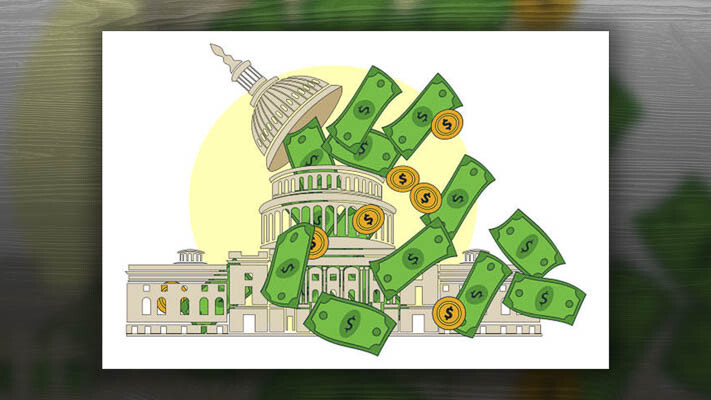
Elizabeth Hovde asks if concerns from business and everyday Washingtonians will be enough to compete with labor-solicited communications and rallies?
Elizabeth Hovde
Washington Policy Center
Labor is nervous. A bill that would allow workers who choose not to work to collect unemployment benefits that are meant for people in Washington state who lose work through no fault of their own — and that are funded by employers — is sitting in the Senate Rules Committee. Pleas from The Stand, a free union publication that is “a service of the Washington State Labor Council,” are going out to union members and directing them how to contact lawmakers about House Bill 1893. A rally has also been planned by labor leaders.

With a continual avalanche of pressure on lawmakers organized by unions — and with union members’ money flowing to Democrats, several of which have been involved in union leadership — it is always notable when bad policy and union handouts like this are resisted. We’ll see what happens soon.
Giving unemployment insurance (UI) benefits to striking workers could make strikes more frequent and lengthy, increasing costs and services for consumers and potentially hurting other workers in the state. It would also create inappropriate government intervention in labor negotiations. Read more about the bill that should offend all Washington state workers, even union members who often feel forced to go along with a labor union that says it represents them, in a blog I wrote when the bill cleared the House.
HB 1893 is sponsored by 51 Democrats. Fifty-one! That is a healthy and out-of-the-norm number. It’s disappointing but not a surprise that labor is calling out the five Democrats who joined 39 Republicans voting “no” on HB 1893.
Bipartisan opposition to the bill wasn’t enough in a House of Representatives dominated by Ds. Again, union money runs blue. Governing.com reported, “Almost 96 percent of political action committee (PAC) spending by the four largest public-sector unions that could be traced went to Democratic candidates and organizations, according to a new report from the Commonwealth Foundation.”
In a Feb. 19 hearing in the Senate Labor and Commerce Committee for this House-passed valentine to labor unions, skeptical lawmakers rightly had a lot of questions about unions wanting them to create a strike fund that would be funded not by unions that collect dues from their members but by employers. That could have trickle-down impacts to other workers and consumers in the state. The questions seemed to focus on whether or not the UI system could support this change and if the state could just tag employers involved in strikes with the extra costs.
Those are secondary questions to me, though important ones. They were likely focused on as they might be opposing lawmakers’ only hope. The main questions — should we provide a safety net for workers who are choosing not to work and who are not looking for employment, as well as shouldn’t unions pay for their own activities and provide a monetary safety net to the workers they urge to walk off the job — aren’t being considered at this point. The majority of Olympia legislators seem to think that workers who choose not to work are victims and the state needs to come to their rescue.
California Gov. Gavin Newsom, a Democrat, recently rejected a bill to give unemployment checks to striking workers. NPR reported in September that even though Newsom often benefits from campaign contributions from labor unions, he vetoed a bill similar to the one our state lawmakers are considering. He said his state’s fund for unemployment benefits couldn’t be put at risk. The fund was going to be nearly $20 billion in debt by the end of the year.
Can we afford it?
The answer to the question about how long Washington state’s reportedly healthy UI system could handle a weeks-long strike by workers of a certain aerospace company or coffee stores in our state is being looked at, given the lawmaker questions.
I’d say if we have plenty of money from employers fueling the UI system, giving them their money back or creating lower payroll tax rates on employers makes sense. Lawmakers in our state are far too comfortable with having budget surpluses while the budgets of job creators, individuals and families get further pinched by both inflation and government inflation.
Business association, employer and everyman concerns have been well-voiced in discussions about this bill, but will concerns from business and everyday Washingtonians be enough to compete with labor-solicited communications and rallies? Senators need to keep all their constituents in mind and not play favorites.
Elizabeth Hovde is a policy analyst and the director of the Centers for Health Care and Worker Rights at the Washington Policy Center. She is a Clark County resident.
Also read:
- Opinion: OIC tells consumers not to pay for ‘insurance’ you won’t likely benefit from: Does that include WA Cares?Elizabeth New (Hovde) of the Washington Policy Center believes you should consider yourself warned by the Office of the Insurance Commissioner about WA Cares and its maybe-only benefit.
- Opinion: Same road, different speed limit?Target Zero Manager Doug Dahl addresses a question about speed limit signs going into and leaving town.
- Opinion: Hiding the growing cost of the Interstate Bridge replacementJoe Cortright of the City Observatory addresses the rising cost of the Interstate 5 Bridge replacement project.
- Letter: ‘This election I am NOT voting for Greg Cheney’Clark County resident Wynn Grcich shares her thoughts on Rep. Greg Cheney and the issue of fluoridation in area drinking water.
- POLL: Should biological males who identify as females be allowed to compete in athletic events against biological females?Should biological males who identify as females be allowed to compete in athletic events against biological females?










